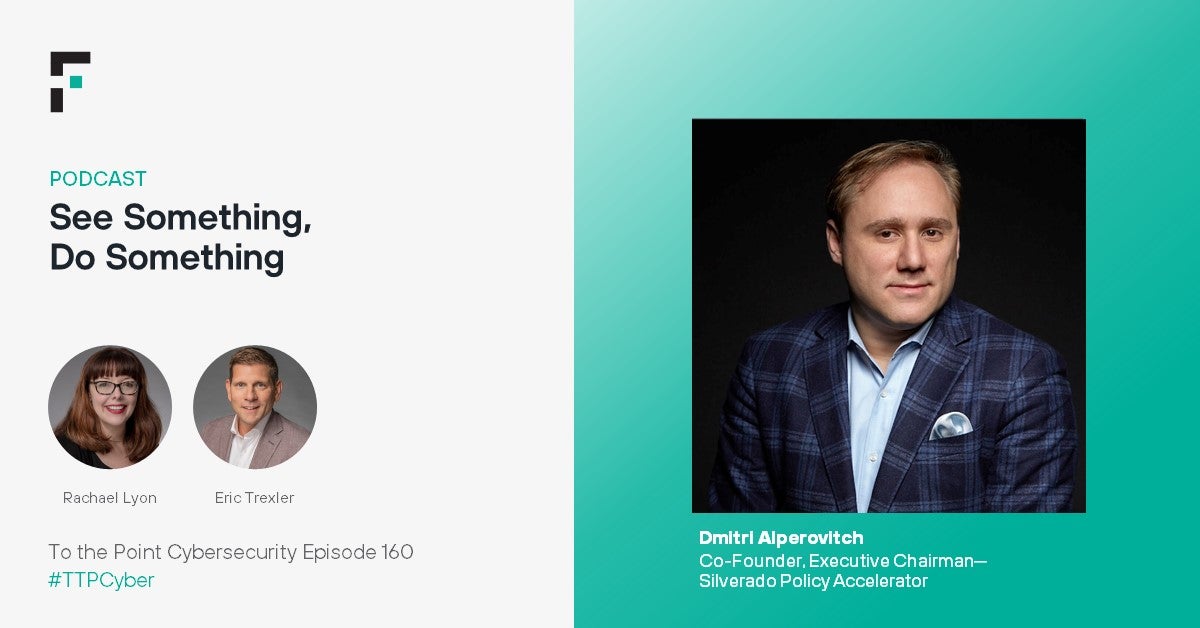Why Cybersecurity Cannot Be Separated from National Security
In the episode, Alperovitch brings a particularly important perspective to the table as we think about threats like ransomware or supply chain attacks. To decontextualize the technology from politics is to miss the forest for the trees.
In a recent podcast, “See Something, Do Something,” Dmitri Alperovitch discusses the overlapping worlds of cybersecurity and international affairs. Throughout the session, his extensive expertise is clearly on display. Previously, he co-founded the Silverado Policy Accelerator, a non-profit focused on advancing solutions to critical geopolitical and cybersecurity policy challenges, and the cybersecurity company CrowdStrike. He has also served as special advisor to the US Department of Defense.
In To The Point Episode 160, Alperovitch covers a lot of ground. He dives into:
Imagining Future Cyber Invasions
In addition to his contribution and recognition through the Alperovitch Institute, Alperovitch has also been named as one of Fortune Magazine’s 40 Under 40, MIT Technology Review’s Innovators Under 35, Politico’ Magazines Politico 50 and Foreign Policy Magazine’s Leading Global Thinkers.

- Why the cybersecurity industry needs to think more about policy and focus more effort into training tomorrow’s cybersecurity professionals to do the same.
- How American venture capitalists are (intentionally or not) funding cybersecurity adversaries in foreign countries in the name of turning a profit.
- Why the supply of semiconductors, including the supply chains for older chip technologies, represents a looming national security threat.
- How cybersecurity intersects with ecological and economic security.
- How offensive operations took the REvil group offline and what we can learn from it.
While there’s heightened focus on the relationship between information and politics in the age of Facebook and Twitter, the reality is that information operations have been going on for at least a century. As we move forward, however, a cybersecurity incident has even greater potential to disrupt people’s lives. Don’t miss this important and illuminating conversation on why.
On a related note, Johns Hopkins unveiled The Alperovitch Institute at a launch event that took place on top of the International Spy Museum in Washington D.C. (in case you missed it, we also interviewed the museum’s curator, Dr. Andrew Hammond). Both podcasts are part of Forcepoint’s To the Point podcast series on a broad and exciting range of cybersecurity topics. We invite you to listen in.
This post was first first published on Forcepoint website by Lionel Menchaca. You can view it by clicking here

